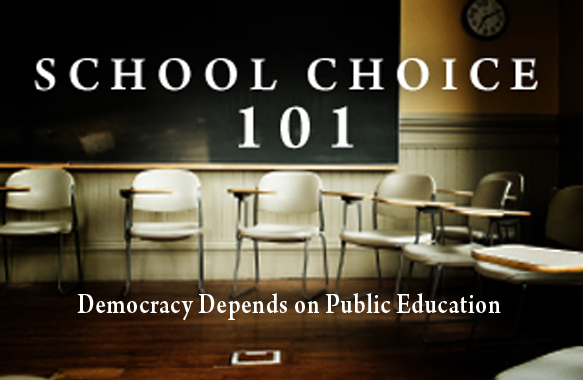By Paul L. Thomas, Ed.D. | Originally Published at The Becoming Radical. February 27, 2014
Deborah Meier reminds us that “one can’t ’choose’ to be the children of the wealthy,” adding later:
You and I—or some other somebodies—are deciding the future of “other people’s children”
[hyperlink added] unless we provide ways for “them” to have a voice, a vote, and the resources to decide their own future. We need to restore a better balance between local communal life (with its power to effect some immediate changes like we did at the small self-governing schools I love) and distant, “objective” moneyed power. It’s our democracy that rests on our rebuilding strength at the bottom. If we don’t, we induce a passivity that surely cannot be in the self-interest of the least powerful, but might (just might) be in the self-interest of others. And then we blame them for being passive?Without consciously deciding to do so, I have just finished reading the novels of Jeffrey Eugenides in reverse chronological order, ending just yesterday with The Virgin Suicides.
In his first novel, the story of five sisters who all commit suicide, the reader is pulled into a collective recollection that feel invasive and obsessive. We are left with many questions about these lost lives. But central to the narrative is the role of the girls’ parents.
One moment in the novel involves the mother forcing one daughter to destroy in a fire and then throw away the girl’s treasured record albums.
This and other scenes in The Virgin Suicides reminded me of the many situations like the one above that my students experienced in their homes—conflicts that hurt and even scarred young people in ways that almost no one would ever recognize.
My daughter is now 24, expecting a child, and if I have learned anything as a teacher, a son, and a parent, it is that parents are apt to make poor choices for their own children—even out of love, but also out of sheer flaws in their own character.
I have parents who gave me an almost idyllic childhood, but they also chose to smoke in the car with my sister and me in the back seat.
A few years ago, I wrote Parental Choice?: A Critical Reconsideration of Choice and the Debate about Choice, a book that approaches the school choice debate from a critical perspective. And I very purposefully did not use “school” in the title since I believe at the root of the school choice movement is the powerful and idealized view of parental choice as a subset of the larger myth in the U.S. about individual choice.
Also during my 18 years teaching public school in the rural Upstate of South Carolina, I was approached every year by students who were preparing to drop out of high school as soon as they reached 16 years of age. They would explain to me that the decision had been prompted by their parents, who explained that either they had dropped out and were doing fine (they often quoted the hourly rate of their parents’ salaries as evidence) or that they now saw no value in what high school graduation gave them.
When choice advocates discuss the primary importance of parental choice, they tend never to mention that dropping out of school is a form of parental choice.
Just as workers in the impoverished South have been manipulated into voting for and embracing ideologies against their own self-interests—where “right to work” resonates even though the law allows employers the right to fire at will—a populist/libertarian refrain that idealizes “choice,” in fact, serves as a mask for maintaining an imbalance of individual freedom in the U.S.
“Poor and minority parents should have the same choices as affluent and white parents” is a compelling refrain.
But it is ultimately a lie.
Idealizing and prioritizing choice renders choice meaningless—but those arguments do insure that the 1% always wins.
Yes, individual choice is an important part of the human condition as well as a central right of a free people in a democracy.
For choice to matter, though, the Commons, the public good must be established first.
Just as Meier notes that no child chooses her or his parents, home, community, or socioeconomic status, we must acknowledge that no one should be required to choose the basics of human existence.
No one should have to choose a good police force.
No one should have to choose a good military.
No one should have to choose good medical care.
And no one should have to choose a good school.
The implication of having to choose the essentials that should be a part of the Commons is that bad alternatives exist—and they must not.
The only way to honor choice as a free people is to first insure the Commons that allow choice to exist in equitable and ethical ways.
Idealizing choice as a primary and universal good is a lie like “right to work.”
The first choice of a free people, ironically, is to insure those conditions that should require no choice—and public education is one of those foundational contracts among a free people that must be guaranteed regardless of to whom or where a child is born.












Leave A Comment